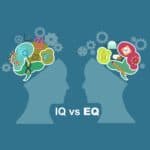Table of Contents
*This post may contain affiliate links. As an Amazon Associate we earn from qualifying purchases.
What Makes A Person A Good Leader Is Their Ability To Set Goals And Achieve Desired Results
The process of developing your leader skills is specifically about doing those things that lead to getting improved results.

Developing your leadership traits requires: attitude adjustment and improved Interpersonal skills.
I engage individuals and organizations in a leadership and strategic planning session. It is communicated at the outset of the process that the result of our time together is the development of shared goals.
One of the first statements I make is: “When there are no shared goals politics takes over.”
1. Don’t Let Politics Inhibit Your Success
Consider the concept of politics in government.
Our national two party system is great for checks and balances. However, unless several members of both parties can embrace a shared goal, nothing happens.

Ultimately one party dominates another through the election process. Then, maybe, their party based goals may be achieved.
Resentment and retaliation are often the outcome when there are detractors from the other party. Round and round we go.
If we consider smaller local government structures, one often finds that shared goals are developed and accomplished more often. Limited time, resources, and smaller groups of concerned citizens are able to agree on shared local objectives.
In business, unfocused politics, with no shared goals, leads to chaos. It’s a waste of time, resources and talent. Applying your unique talents to the process of setting and achieving goals answers the question; What is a leader… For You.
Vision. Emotional Intelligence and Action are among the qualities of a good leader that continually gets improved results.
[amazon fields=”B00009MB54″ value=”thumb” image_size=”large” image_align=”center”]
[amazon fields=”B00009MB54″ value=”button”]
2. Develop Your Leadership Skills
Ever here the term: ‘that persons a born leader.’ Well that’s bull.
Leaders are made, not born. You have the ability to develop your full potential. It is important to understand that the way to get there for you is different than anyone else.
The first established process I use when developing leadership skills for a group is to ask each individual to pick a person from history that they consider to be a great leader. I then ask them to write down what they judge to be that person’s three highest leadership characteristics.
Here are actual examples from group participants taken from my colleague David Mutcher’s book, Fail Safe Leadership:
- Understanding, Knowledgeable, Humanitarian
- Decisive, Visionary, Good Teacher
- Patient, Emotionally Detached, Able to see the big picture

You may notice that each person defined their hero’s leadership characteristics very differently. Often people project their own unique style and attributes upon their hero.
The take away from this exercise is that the ‘specific’ behavioral traits we associate with a good leader are secondary. We all come from different backgrounds and situations. The significant fact here is that all the selected examples achieved a desired outcome using their unique skill set.
You have strengths and weaknesses that are specific to you as an individual. While we all need to be aware of our weaknesses, understanding our strengths and applying them will make you a unique and powerful leader.
If you don’t inherently know your strengths, there are many good online assessments.

You can also work with your Human Resource department or a consultant to identify them.
I have successfully used Innermetrix Inc.’s Attribute Index to help people quickly identify their strengths. Jay Niblick’s book What’s Your Genius is among the many great tools to get you focused on your strengths as you embrace your leadership style.
Here’s Jay speaking about uncovering your strengths, which he refers to as your genius.
3. Apply Emotional Intelligence
Emotional Intelligence (EQ) may matter more than your Intelligence Quotient (IQ) when you need others to assist in achieving a goal.

Also know as EI or EQ, Emotional Intelligence is defined as the skill in perceiving, understanding, and managing emotions and feelings.
In their book, Crucial Conversations, the authors explain how applying EQ to a situation brings people together during difficult conversations. Often my goals and your goals may be different, or we have conflicting reasons when establishing similar outcomes.
As driven individuals we often don’t know how to, or really even want to, come together to establish a new, better, shared goal. Ego, self-righteousness and not listening to the other’s needs are often obstacles.
Great leaders are great listeners. The process this book recommends when you wish to move an objective forward is to really listen to the others point of view.

If you can both agree to ‘start from the heart’ to dig down to the reason why the goal is important from each other’s perspective, you can potentially come together and create an improved, shared goal that is good for all.
This may sound crazy in business, where the bottom line and profit are often driving factors. Consider this quote by the Management Expert, Peter Drucker:
“The purpose of business is to create and keep a customer”
Goals that innovate often expand the customer experience and keep them coming back for more. It’s not about you or me, it’s about the customer.
Take your emotions out of the equation and focus on lovin on your customer. The process often achieves new enhanced goals, new services and more efficient, profitable processes.
[amazon fields=”1476795924″ value=”thumb” image_size=”large” image_align=”center”]
[amazon fields=”1476795924″ value=”button”]
4. Be A Visionary
When one begins a career their first job is generally task oriented. As we advance, we are expected to move from managing tasks to leading others. Often there is no leadership training program, we are just promoted until we find our level of incompetence.

This was the subject of a book by Peter and Hull called The Peter Principle. Although the book was published in 1969, the concept is still true today. Now that you are aware of this, don’t let it happen to you.
Always plan for the future you want to create for yourself and others. Always have a VISION for your future. Vision is the ability to see, or plan something in the future.
Sometimes just having the idea about a different future is the driving energy that moves one forward towards their vision.
Vision Development Guidelines
Your Vision is a picture of the future that you believe will occur. It should have several elements:
- It should be yours. Communicate a future for yourself or your business that will use your strengths and set you apart.
- It should be inspiring. Appeal to your long-term interest.
- It should be focused. Easy to understand and to share.
- It should be attainable yet have reach. When you stretch yourself you tend to do the things necessary to reach your objective.
- It should be exciting, vivid and spark joy within you, and others.
5. Understand Power And Authority
As you embrace your path to leadership it’s important to understand the difference between the concepts of power and authority.
I once held a marketing manager position with a zero based budget, working with an operations team that believed they had no use for the marketing department’s assistance.

Power is the skill or capacity to act in ways that influence the behaviors of others
That didn’t stop me. I had a vision to make the company a leader within a segment that had enormous potential. I used my power as an influencer. I worked with different sales and marketing managers to enhance their revenues by promoting newly positioned services and programs. These new products just happened to benefit operations.
Soon the company was attracting new customer segments and operations expanded. With little authority and lot’s of influence my career moved forward through creating customer demand.
Power is the skill or capacity to act in ways that influence the behaviors of others. It is a talent that one develops as a leader. I had little authority, but I used the power I had to achieve a goal.
Authority, on the other hand, is usually granted as part of an organizations attempt to manage or control others or situations. Just because someone may have authority over others, they may possess little power to be successful. Those in authority do best when they earn their power by creating a climate of trust and providing a positive atmosphere focused on autonomy, mastery, and purpose.
Once you develop your unique genius and leadership style you will have the power to achieve great things.
[amazon fields=”0446556076″ value=”thumb” image_size=”large” image_align=”center”]
[amazon fields=”0446556076″ value=”button”]

